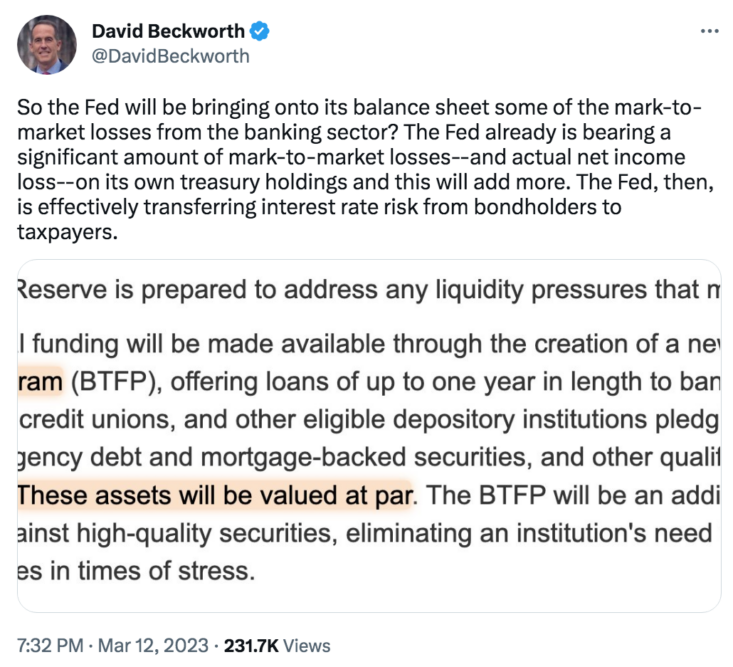Time Inconsistency In Bank Regulation
Back in the late 1970s, economists began exploring the “time inconsistency problem” in monetary policy. In the long run, we are better off if central bankers maintain a low inflation rate (or NGDP growth rate.) But in the short run, the economy may do better with a more expansionary policy. The negative consequences of that expansionary policy will be mostly borne by future policymakers.
It turns out that the time inconsistency problem in central banking is somewhat overrated. Central banks often succeed in keeping inflation low for long periods of time (but not recently.)
In fact, the time inconsistency problem is far worse for banking regulation. Political and economic managers like President Biden, Janet Yellen, and Jay Powell would very strongly prefer that a financial crisis not occur on their watch.
There’s a common but understandable misconception that there is a sort of tradeoff involving financial stability and moral hazard. People assume that we can have financial stability with moral hazard, or we can have financial instability with a regime free of moral hazard. I cannot emphasize enough that this is a false assumption!
Policies that lead to moral hazard (government deposit insurance, TBTF, bailouts, etc.), cause more financial instability in the long run.There’s no trade-off to exploit here.We don’t buy a more stable financial system with bailouts.We encourage more risk taking. So then why does the federal government keep bailing out financial actors that made bad decisions?
Here’s where the time inconsistency problem comes into play.While bailouts make for a more unstable financial system by encouraging ever-greater risk taking, in the short run they do reduce financial instability.And it seems as though President Biden, Janet Yellen, Jay Powell and the other key policymakers favor steps that would make for less financial instability over the next 5 years, even if they would make for more financial instability over the next 50 years.
PS.While the media has focused on SVB, the much bigger outrage is the Fed’s new facility to bail out all banks that made bad decisions.You bought risky long-term bonds with short-term deposits?Don’t worry; the Fed’s got your back:

This is one of the darkest days in US financial history—a breathtaking expansion of moral hazard. Younger readers should brace themselves for much worse in the decades ahead. We are sowing the seeds of future financial crises.
PS.I highly recommend reading Peter Conti-Brown’s tweets on this affair. Here’s one example:

More By This Author:
Promises, Promises
QE And Low Inflation Are Not Alternatives
Natural Resources Are Overrated



